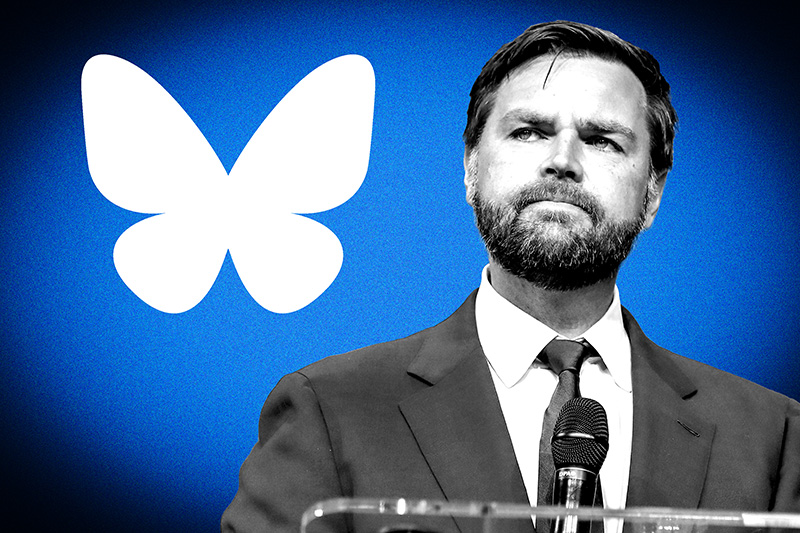Activists to Sue Over Utah Ban on Gender-Affirming Care
The ACLU of Utah and the National Center for Lesbian Rights claim the newly signed law is discriminatory and unconstitutional.

LGBTQ allies and advocates intend to sue over Utah’s recently enacted law banning gender-affirming care for transgender minors.
The American Civil Liberties Union of Utah and the National Center for Lesbian Rights will be suing over SB16, which imposes an indefinite moratorium on transition-related hormone treatments and bans surgical interventions.
Critics say the law, signed last week by Utah Gov. Spencer Cox, unfairly attacks transgender youth by seeking to erase their identities and forcing them to conform to gender norms matching their assigned sex at birth.
Requiring those youth to wait to receive gender-affirming care until adulthood, critics argue, will worsen their feelings of gender dysphoria and potentially lead to increased depression, anxiety, or suicidal ideation.
Additionally, critics claim the law unfairly penalizes doctors who are genuinely trying to recommend the best possible treatments for their patients, potentially leading them to be disciplined or lose their livelihood simply for acknowledging a youth’s transgender identity.
They also note that some forms of gender-affirming care — particularly “social transition,” where a person dresses, styles their hair, and uses pronouns matching their gender identity — can help combat gender dysphoria without medical interventions, and are completely reversible.
The law’s sponsor, Sen. Mike Kennedy (R-Alpine), a practicing family physician, said during debate on the Senate floor that he fully expected the bill to be challenged in court.
“I would bet every dollar that I have in my bank account right now that this will be litigated,” he told colleagues. He argued that, while the bill is not perfect, it does represent a good-faith effort to protect children by preventing them from undergoing medical interventions that they may ultimately regret if they ever grow out of their feelings of dysphoria.
“We can’t allow social policy to outpace science, especially when scientific evidence is still emerging and lacking in consensus,” Kennedy said in a statement earlier this week, according to Deseret News. “I hope we can continue working together to provide our struggling children with the support they need to grow and thrive.”
As Reuters reports, the number of gender clinics treating youth with dysphoria has risen to more than 100 over the past 15 years, which has led many Republican lawmakers to prioritize banning access to gender-affirming care, based on the belief that the science surrounding transition-related treatments is not yet settled.
So far, four other states — Alabama, Arizona, Arkansas, and Tennessee — have passed similar laws restricting gender-affirming care for minors.
Lawsuits have been filed in Alabama and Arkansas to prevent officials from enforcing those bans, with federal judges siding — at least temporarily — with transgender plaintiffs and their allies. At least 10 other states have introduced similar legislation this year.
In Texas, state officials are currently carrying out a campaign against gender-affirming care by directing child welfare agencies to investigate parents who allow their children to access such treatments, with the possible aim of prosecuting them and sending them to jail for “child abuse.”
Cox defended signing the law, arguing that there is not sufficient medical evidence or long-term research to back up the seeming rush to medicalize transgender-identifying youth.
“Legislation that impacts our most vulnerable youth requires careful consideration and deliberation,” Cox said in a statement after signing the bill. “More and more experts, states, and countries around the world are pausing these permanent and life-altering treatments for new patients until more and better research can help determine the long-term consequences.”
But Shannon Minter, the legal director of the National Center for Lesbian Rights, said the wave of Republican-backed bills targeting gender-affirming care amounts to “a kind of hysteria, a mob mentality.” He vowed to challenge such restrictions in court.
“This involves a very small group of kids with a rare medical condition,” Minter said. “When kids get the treatment and support they need, they do really well.”
The ACLU of Utah has already argued publicly that the ban on gender-affirming care raises many constitutional issues, and may violate the equal protection rights of transgender youth and the due process rights of their parents to raise their children as they see fit, as well as discriminate against those youth based on their sex and gender identity.
“Trans kids are kids,” the ACLU of Utah said in a statement. “They deserve to grow up without constant political attacks on their lives and health care. We will defend that right.
“With each incursion into the rights of transgender Utahns, we will use every avenue necessary, including litigation, to defend the civil rights and liberties of transgender and non-binary people from the legislators using their power to infringe on these freedoms.”
Support Metro Weekly’s Journalism
These are challenging times for news organizations. And yet it’s crucial we stay active and provide vital resources and information to both our local readers and the world. So won’t you please take a moment and consider supporting Metro Weekly with a membership? For as little as $5 a month, you can help ensure Metro Weekly magazine and MetroWeekly.com remain free, viable resources as we provide the best, most diverse, culturally-resonant LGBTQ coverage in both the D.C. region and around the world. Memberships come with exclusive perks and discounts, your own personal digital delivery of each week’s magazine (and an archive), access to our Member's Lounge when it launches this fall, and exclusive members-only items like Metro Weekly Membership Mugs and Tote Bags! Check out all our membership levels here and please join us today!



























You must be logged in to post a comment.